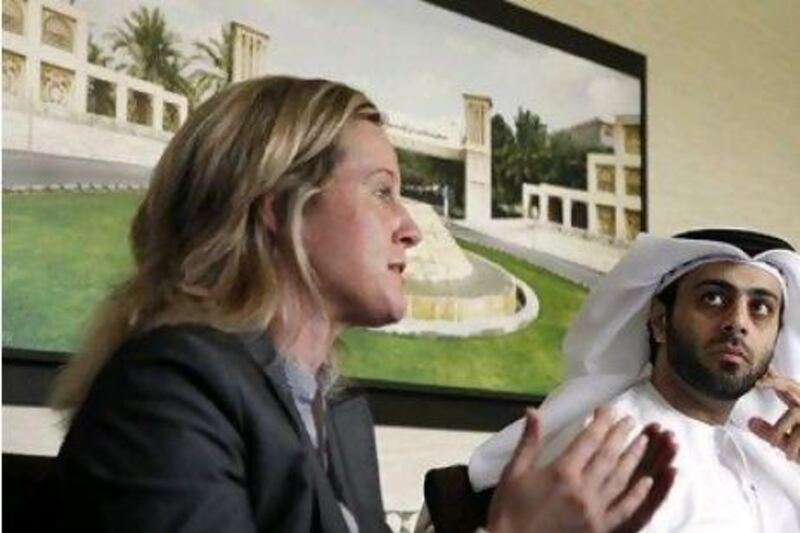Outsourcing used to be a dirty word associated with companies looking to cut costs at the expense of decent customer service.
But a new trend is emerging, with the UAE at its centre, in which outsourcing is seen as a means of offering better quality, not worse.
The global industry, which is worth US$370 billion (Dh1.35 trillion), is projected to rise to $479bn by 2016, with Jordan, Egypt and the UAE showing the highest growth rates.
The UAE's outsourcing sector is projected to increase by 10 per cent over the period, to $1.08bn by 2016 as a result of its location and diverse workforce, according to a new report by Dubai Outsource Zone and the consulting firm Frost & Sullivan.
Companies know they can no longer get by merely with low-paid employees who do not have the language or interpersonal skills to manage customer calls.
"Cost efficiency remains a very important issue but it's also about a certain level of quality of service," says Lindsey McDonald, an information and communication technologies consultant for the Middle East and North Africa at Frost & Sullivan.
Ms McDonald says the UAE offers companies the opportunity to staff call centres with employees who speak a number of languages, and can therefore deal comfortably with Emiratis, western expatriates and those from the Asian subcontinent. She says it can be slightly more expensive for outsourcing firms to hire staff here compared with countries such as Egypt and India, but that can be offset by providing higher quality.
"The main advantage here is the foreign language capability," says Ms McDonald. "Operating in the UAE might be more costly than other destinations but it's a cost-effective value proposition rather than a low-cost one.
"Up until the crisis we weren't really worried about operational costs in this country. Now all of a sudden we have realised we do need to focus on reducing (those costs) and outsourcing presents a fantastic opportunity to do that. It also allows you as a client to focus on what you're good at."
The market in the UAE was initially focused on travel and tourism, as well as financial services, but there are opportunities for growth in other sectors.
"There are so many key market areas, like (information technology), finance and the public sector and we assume that there will be an expansion of the outsourcing activities in health care," says Malek al Malek, the managing director of Dubai Internet City and Dubai Outsource Zone. "Of course tourism will continue, and others are insurance and education. These areas should be a focus for outsourcing companies."
Ms McDonald says asset management and security are also growth areas. The UAE could gain a greater market share as a result of the security situation in Egypt, but is not expected to challenge its leadership of the Middle East and North Africa region.
"Because Egypt is such a big market there's a lot of doubt in that market. It actually does play favourably for other destinations such as the UAE and Jordan that offer comparative security," says Ms McDonald.






